-
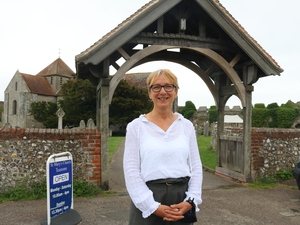
30 October 2021
MY FAITH: ‘My trust in God deepened because of the pandemic’
Julia Gay, from St Mary’s Church, Portchester, tells us how her faith blossomed during the ... read more
-

29 June 2021
Transformed church opens cafe and soft play area
St Margaret’s Church in Southsea has been celebrating a radical transformation that has seen it ... read more
-
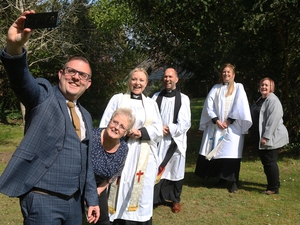
2 May 2021
Team for North Gosport completed by double licensing
The licensing of the Rev Samantha Martell and the Rev Jude Greenfield as team vicars ... read more
Seven ways your church can do things differently during coronavirus
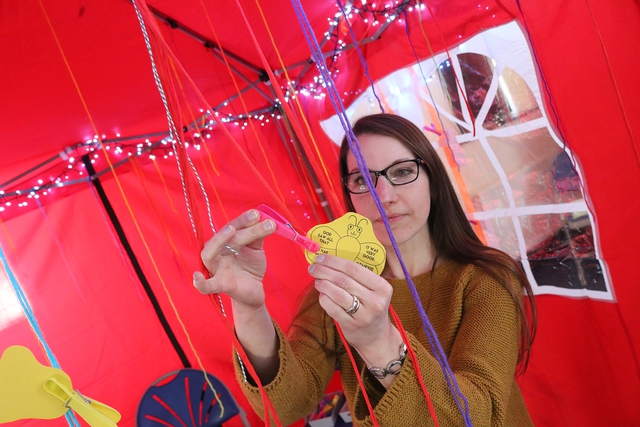
IT’S easy to assume that the coronavirus outbreak involves a list of things that we can’t do as Christians – meet together, go inside our church buildings or share bread and wine. There is real sadness involved in not being physically part of a worshipping community.
However, the current lockdown also gives us the chance to explore some of the different ways that we can be church together. We may learn more about what's really important for our faith, find new ways of doing things, or discover that God is providing ways to engage with new people that simply weren’t available before.
Here’s our guide to some of the ways in which the coronavirus outbreak might help us find new ways of building up relationships, reaching out to our neighbours and embracing digital technology:
1. Help out in your own street
One way in which the outbreak is helping to develop community spirit is on a very local level. People who might have hardly spoken to their neighbours before are now checking regularly to see if they need groceries, prescriptions or other support. Whole streets are forming WhatsApp or Facebook groups to keep track of who is vulnerable or self-isolating and organising rotas to shop for them, or suggesting ideas that can keep children entertained.
Part of our Christian faith involves finding ways in which to serve our local community, and help doesn’t get more practical or local than this. What can you, and the individuals who make up your church community, do to help those living immediately around them, and to build up lasting and authentic relationships?
2. Use video conferencing for small groups
As church congregations, we are used to meeting in large and small groups, for worship, prayer and mutual support. Although we can’t be physically present with each other at the moment, we can use technology such as Zoom or Skype video conferencing to talk in smaller groups. Some of our churches’ Bible study groups, youth groups and house groups have continued to meet using this technology, reading and reflecting on Bible passages and praying for each other’s needs.
If you are leading an Alpha course, or offering some kind of training, it’s possible for all the participants to watch a video or Powerpoint display on the host’s computer simultaneously. This makes it possible to continue with weekly sessions that you may have discontinued in the current crisis.
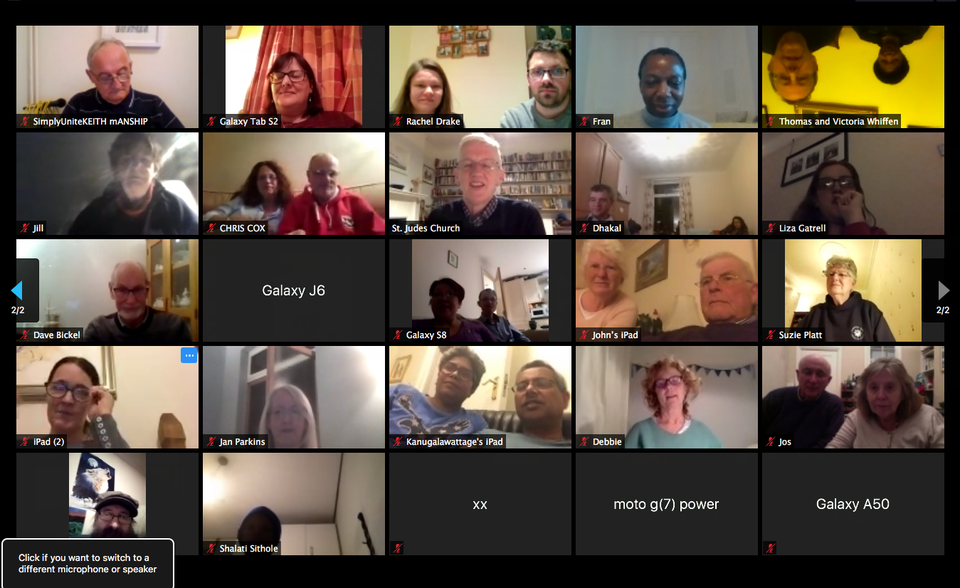
For some people, this might be even more convenient than physically meeting in the church building or someone's else's home. Those who are housebound can join in; those single or two-parent families with small children who were previously unable to get out in the evening can participate from their own homes; and those who live elsewhere in the UK or even abroad can now be part of your church family in a new way. There's more advice about using Zoom for small groups here. You may also have some valid reasons for concerns about security when using such video conferencing. Click here for our advice on those issues.
3. Use the phone to contact parishioners
Before the coronavirus outbreak, we relied on weekly get-togethers in church services, lunch clubs, house groups and youth groups in order to catch up with fellow congregation members and check how they were doing. Communication was either face-to-face, or by email, text or social media, and was often quite brief. Many of us have got out of the habit of actually phoning each other up for long chats.
The coronavirus outbreak has given our phones a new lease of life as devices that enable us to chat to each other for long periods, especially as many of us are spending most of the day at home. No longer are we just leaving messages on answering machines. It's not just those who are housebound or self-isolating that need such support - all of us are missing human contact, and a catch-up call gives us a chance to share how we are doing with friends.

Some churches have set up pastoral support systems that divide their congregation into different groups. Volunteers will ring up their list of people, check if they are healthy, provide a listening ear, and check if they have any specific practical or spiritual needs. The advice that the Church is getting is that maintaining this network of support is one of the most valuable things we can do. That's because if we can keep in touch with the thousands of people we already have contact with, it relieves the burden on other professionals and volunteers who are trying to support the most vulnerable in our society. More details are here.
4. Volunteer to help as part of care groups or community groups
It's tempting to think that the Church needs to step in and to start to create special new teams of volunteers who can help people who are vulnerable or isolated. However, there are many local care groups or community groups that existed before the outbreak, who are looking for your support and already have such networks in place. In Hampshire, the Good Neighbours Network (which is based in our diocesan offices) includes more than 100 local groups that provide practical support to individuals who need it. Many of these existing volunteers are themselves retired, and therefore some of them are unable to help at the moment. What a good opportunity for members of your church to step up to the plate and offer to fill those gaps. Find out some details here.
There are also other networks that have already been created to support the needy and vulnerable in Hampshire, Portsmouth and the Isle of Wight. Your church members could sign up to help via the Community First Network in Hampshire, the Hive in Portsmouth or Community Action on the Isle of Wight. Find out details here.
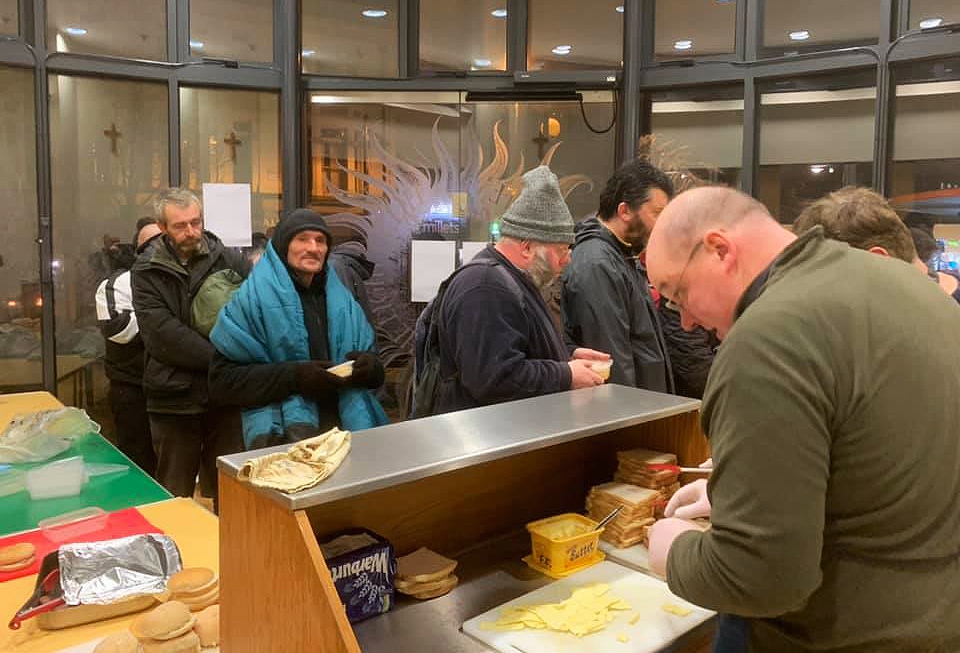
And some of our churches are also still distributing food and supplies to those who need them via Foodbanks, or the groups they are already running to help those who are homeless or are suffering from mental health or addiction issues. You can read more about this here, and offer to volunteer if you live nearby. Wouldn't you like the legacy of your church to be a commitment to feeding the most vulnerable during a time of crisis?
5. Live-stream worship from your homes
It's great to see so many churches are live-streaming their worship - from their church buildings or people's homes. Like video conferencing of small groups, this may mean that people can access your prayers and worship who were unable to attend before. Broadcasting it via your website, Youtube or Facebook Live means non-churchgoers can stumble across your worship and 'attend' in an anonymous way that wouldn't have happened if you were in your church building. So why would you stop doing this once coronavirus is over? A regular weekly live-stream of a full congregation enjoying your church's worship could be an important legacy of this lockdown.
Doing worship from the vicarage or from someone else's home inevitably means that it will have to be different in some ways. Why not embrace a style of worship that you've not tried before, and which lends itself to the intimacy of the setting? Times of contemplation, reflection or even silence can be powerful, even if broadcast digitally. Using material from around your home as visual aids to teaching could make what you say more relevant to other people's domestic lives. See above for a great example of how St Faith's, Lee-on-Solent are using their home venue and the digital format to do things creatively.
Do be aware that there are certain copyright and licensing issues relating to using recorded worship music in your live-streams. You may have a licence to use a CD track in church - that doesn't mean you have permission to broadcast it publicly. Check out our advice about recording video, live-streaming and licences here.
6. Offer creative resources to help people to engage with faith
It's possible to see this enforced time at home as an opportunity to be creative, and to engage with our Christian faith in different ways. Perhaps there are books you've meant to read for ages, or different styles of prayer you've wanted to try, or digital resources to help discipleship that you've never got round to looking at? Well, now's the time when you could do that. And, if you find them helpful, now might also be the time to share those resources with others in your congregation.
We've compiled a list of some creative ways to pray and worship if you are at home, from the most up-to-date digital resources, to some of the oldest spiritual methods used by our ancestors. You can discover some creative ways to pray and worship as adults here. And there are some resources to use with children, families and young people here. We'll keep updating them as we go through this outbreak, including some more seasonal ideas. Of course, once your congregation has embraced spiritual resources that can be accessed online, then there's no need to stop using them once our church buildings are open again.

The national Church is still planning its global initiative of prayer for Thy Kingdom Come, which happens between Ascension Day and Pentecost Sunday. That might look very different this year, if we're unable to meet physically to pray, But there's nothing stopping us praying in our own homes - by ourselves, with our household or with others via digital technology. And why not start praying now for the five people who you would like to see coming to faith during or after the Thy Kingdom Come season? More details will come soon about how our diocese plans to engage with this initiative this year.
7. Continue to do things differently
Whenever the restrictions on public gatherings are lifted or our churches are opened again, it will be tempting to go back to what we used to do as the Church. But the chances are that our society will be quite different for some time, and also that we may have learnt something about engaging with people in a new way. If your church has been broadcasting via Facebook Live for a few months, you may choose to carry on doing this, but this time with a full congregation worshipping together. If you've set up elaborate ways of offering people pastoral support, why not keep doing it? If your worship and small groups have got more creative out of necessity, why not keep discovering new ways to do things.
As Christians, we do believe that God can use all kinds of situations to teach us new things and to help us to develop as disciples and evangelists. In time, we might look back on the coronavirus outbreak as the catalyst that helped to define our faith for future generations.